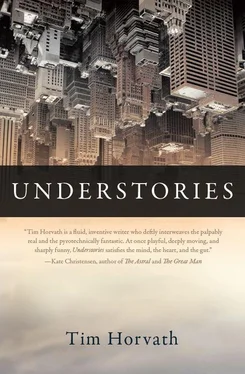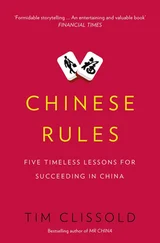Part of what made it so difficult to detect the Conversations was their pristine logic, their lavishness with detail, the intricacy with which it felt like someone had put them together. They were camouflaged in the way a flounder picks up six or seven shades of stones from the bottom and presents itself, an unfinished mosaic, one whose tiles haven’t yet been glued into place, and might just keep shifting.
The other thing that made it difficult to pick up the Conversations is that no one had the faintest fucking clue as to what they could possibly be.

They were, it ought to be emphasized, about everything and nothing. They were about the best place to get bubble tea in all of Tokyo. They were about whether anime was a fundamentally self-aware genre. They were about ghost sightings and the existence of paranormal beings. They were about ridiculous roommates who left their shit everywhere. They were about whether that dress made her look fat. They were about whether it was ever okay to scroll through someone else’s text messages. They were about whether the affiliation of Walt Disney with the L.A. Philharmonic was ultimately a good thing. They were about whether or not to stay in/leave/go deeper into Park Slope/New York/an affair. Loosely, they could be grouped under the heading of “disagreements.” What they weren’t were online chats, phone conversations, small talk, screaming matches, Skype exchanges, the letters pages of The New York Review of Books, the catacombs of blog commentary threads. They were face-to-face, live theater in the round, and called for mouths and throats and sweat glands and gestures intended and incidental and facial tics. No one knew exactly how long the Conversations had been going on before it was recognized what they were. It took a damned spot of time to figure these things out. To realize that some of the slaughtered had not only been at the epicenter of the blast but that they had been the fuses.
It was only with the design of the pocket black boxes that it became possible to trace them, to record them as they transpired and then play them back. Even given their survival rate in blasts, it was surprising that the black boxes made it through the Court’s strenuous weeks of deliberation. They did, with the proviso that the only time their contents would be open to screening would be after a Conversation or if a Conversation was strongly suspected to be imminent. Over time, the free market took the boxes and compressed them, made them compact and funky, allowed you to personalize yours so that you felt some ownership over it, the sides aglow with yellow-green, imprinted with your floating genome map or a rotating skull. It was, like, your life. It would outlast your body.
When Conversations erupted, the recordings were scrutinized, weighed against the chatter of suspected terrorists. Translators for every conceivable language came to be in high demand. Voiceprints danced, nightly, across monitors. Crack cryptologists each took their swings. They manhandled the messages, parsing them every which way for code, from syntax to semantics, the shapes of glottal stops, the lacunae. They were checked against the Koran, Shakespeare, the Ramayana, the whole damned library. One by one, the usual suspects were ruled out. No shortage of terrorist organizations vied to take credit for the blasts, but their claims, to a one, were exposed as hollow. The sole thing that the Conversations appeared to have in common was this Rome-like quality — all roads led to the blast.
Once the authorities had ruled out earthly sources, naturally the zealots and the rabbis and the televangelists and the imams all weighed in on what was happening, since it was clearly the handiwork of some god or other, such that if we could peer into the souls of the dead, we’d know the very contours of their weaknesses and their sins, could see the waswasas that had afflicted them and driven them into these back alleys, from which they could escape only through expulsion from their bodies. A prominent televangelist, his church the size of a small stadium, giant television screens blaring his message hither and yon, decreed that this was God’s way of reminding us that He is in every single conversation, not merely those that praise and glorify Him and His Works, not only those that pertain to the way that his Word is to be manifest and its seeds sowed across the face of the earth, not only those that would chastise and rebuke those who have strayed from the path that He has clearly delineated, but in the most humble, ordinary of matters, the talk between a man and his wife, between a father and his son, He is unabashedly present in all of these things. The rabbis convened to discuss the implications, as well. What could God mean by causing these events to happen? What sense could be made of it all? Was this simply more evidence of His inscrutability, His mysteries? Was not the history of Judaism itself one of conversations constructed in the margins of previous conversations, Talmudic and Midrashic debates that went on over the course of centuries? These conversations they began to carry on, themselves, in writing, kneeling upon vast pieces of paper like children doing some activity, their handwriting spreading till entire floors were covered. Until more was understood of God’s intentions and the purport of His message, it would not do to speak aloud about it.

If Tad McGill and June Miet hadn’t survived separate explosions roughly contemporaneously, and if the youthful, slightly cocky journalist named Jason Tubbs hadn’t been granted access to the survivors and put dos y dos together, who knows how much time would have passed before the Conversations were discovered? As it was, Tad lay in a coma for several weeks before his eyelids began to flicker and nostrils twitched. Slowly, he began to hoist himself out of that vegetative state, and after that it would be months before he could speak, and weeks more before his memory of the moments leading up to the explosion began to undissolve back into focus for him. Finally, there was the last leg, wherein he needed to be able to trust that recollection and accounting of events in the face of the obvious trauma, even with the parade of would-be biographers, Hollywood producers, politicians, gold diggers, corporate executives, et cetera, coming through his room. Tubbs clung to his bedside like some long-lost brother, tirelessly zapping his heat compress in the microwave, slipping him nicotine patches, you name it; Tubbs got close to Tad and made sure that — if and when there was something to confide — he’d be the one privy to it.
At first, he didn’t even pick up the parallels between Tad’s situation and that of this woman June thousands of miles away in Massachusetts. No one did. That both Tad and June had been engaged in conversations with loved ones (both of whom had, sadly, been killed in those same blasts) — well, these things happened. And then there was the interior experience of the event. When Tad came around, he described it to Tubbs, that sense he’d had that he was reading someone else’s lines, lines that made an astounding, uncanny sense in the context of his relationship with his wife. There was a slowing of time, and it felt as though his tongue was operating completely independently of his brain and mouth, had broken away.
Plus, there was the mint.
“Mint?” Tubbs asked.
“Mint. I’m remembering it now. Like the strongest breath mint you’ve ever had. . only, like, ten thousand times more potent. I can’t possibly describe it to you.”
The whole thing, he said, bore more than a passing resemblance to déjà vu — that sense of removal, of observing the world around one and even oneself through a haze, at a distance. And he’d assumed, naturally, that what he was experiencing was some variant of déjà vu or, shit, an aneurysm or a seizure or something, one that in the most literal sense tied the tongue, twisted and tugged at it. It was actually kind of pleasurable, in an odd way, a relief — like you didn’t have to figure out what to say next, didn’t have to censor yourself; all that felt as though it had been taken care of for you. And, as would become increasingly plain, the Conversations tended to occur after an impasse of some sort had been reached or at a point of extreme frustration, where those involved had been “going in circles,” or had “already talked about this, in one form or another, a thousand times.” Tad had been discussing with his wife whether or not it made sense to get their daughter, Samantha, tested for a learning disability the way two of her friends had recently been. Tad himself had struggled in school and only as an adult had figured out that maybe someone had slipped up. The Conversation had started faintly, like gum with its flavor already mostly chewed out of it, and then gone into a rather sudden crescendo.
Читать дальше













